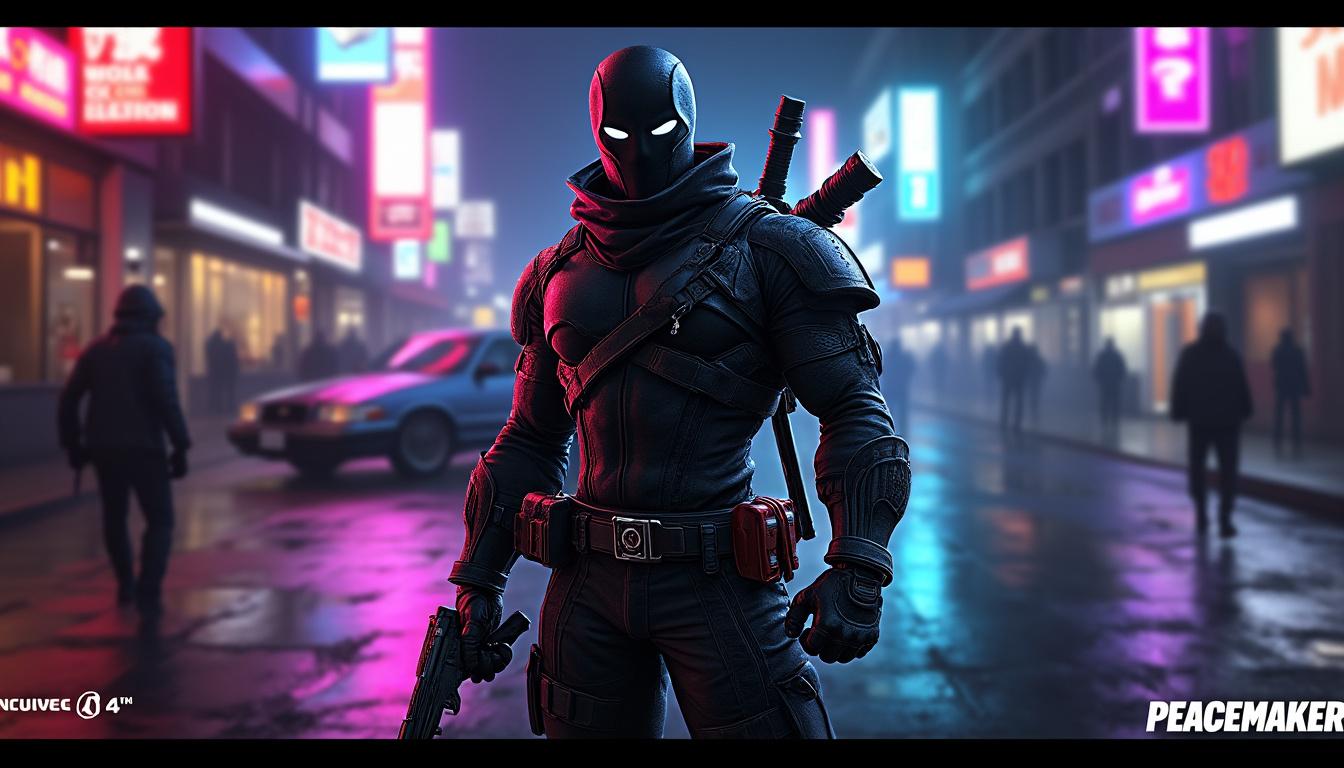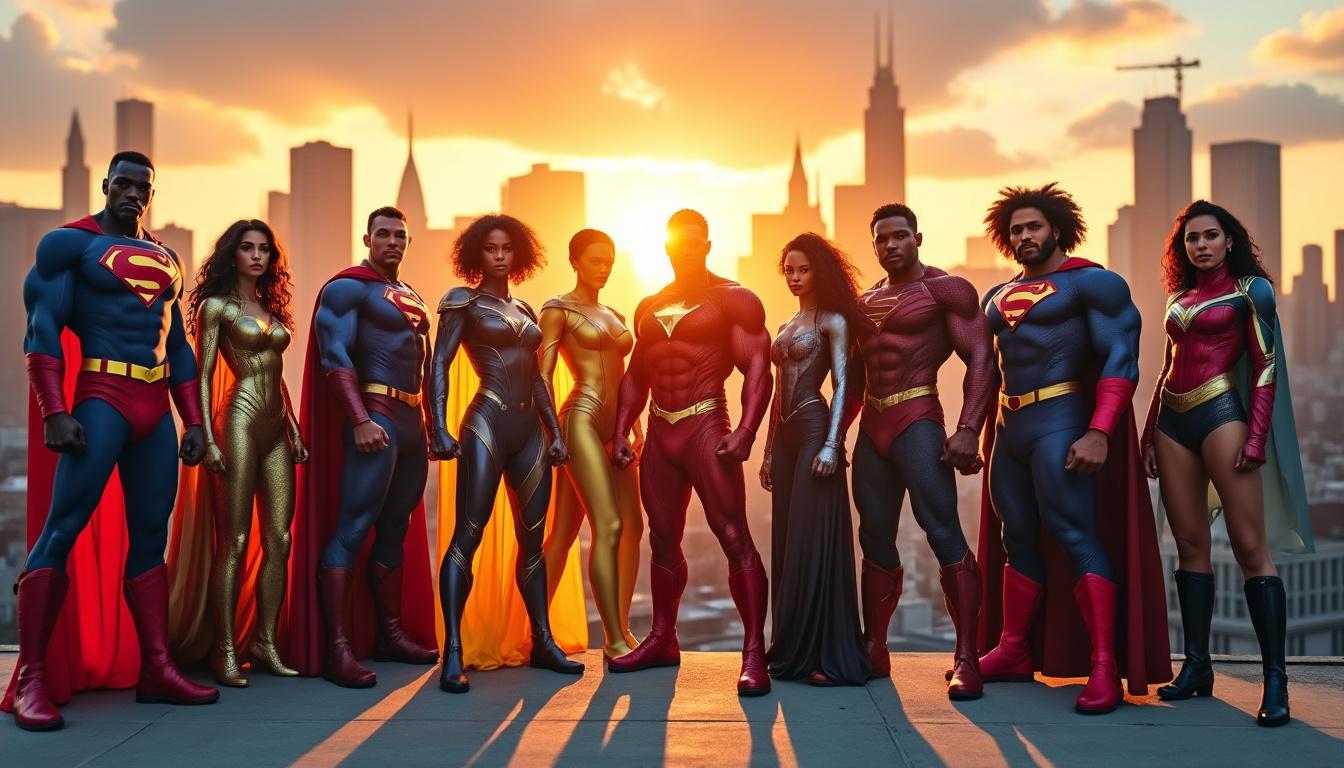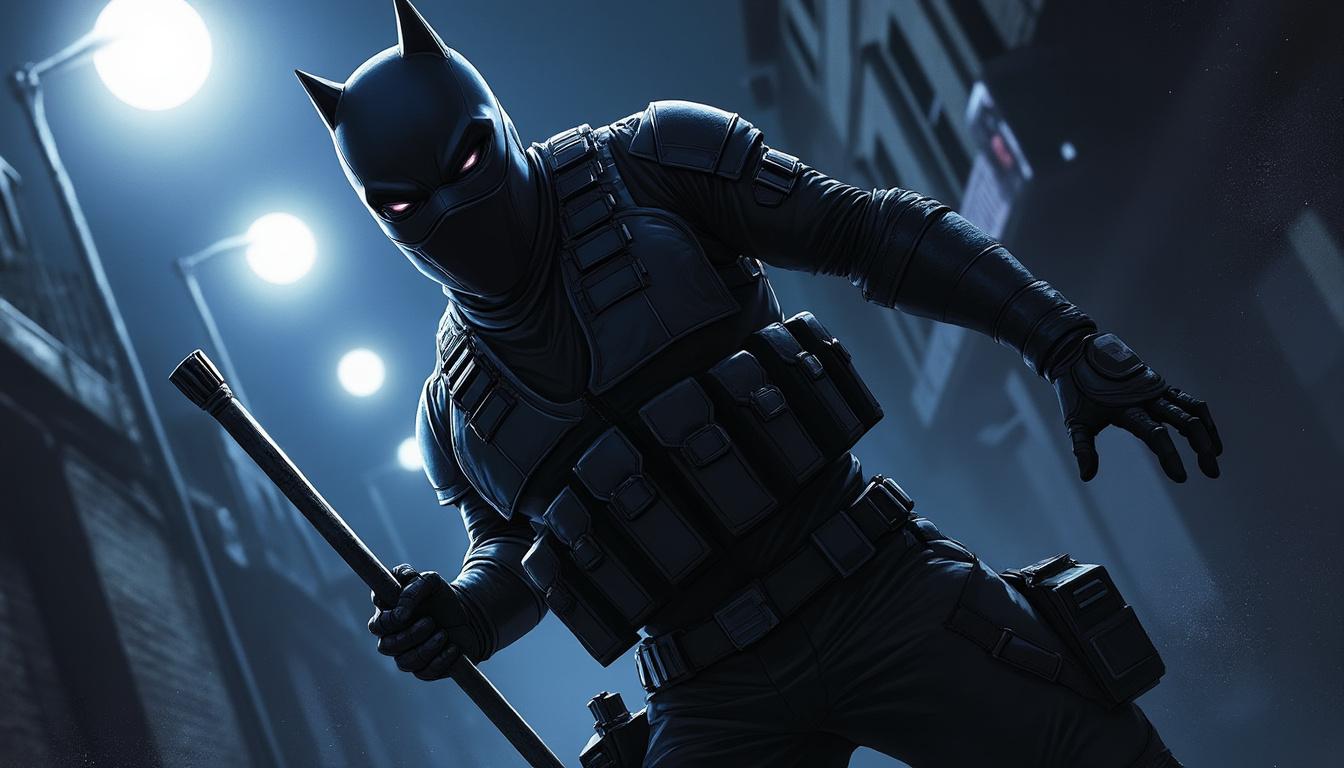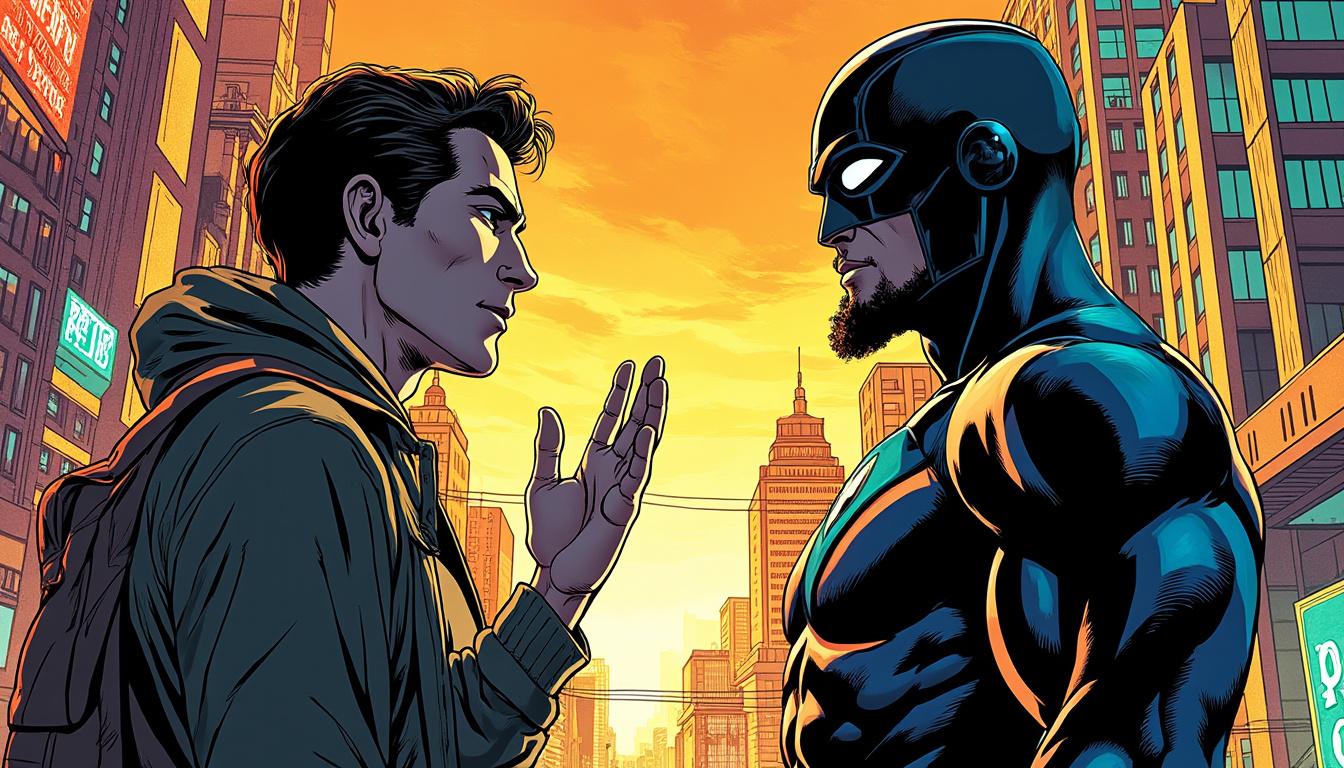Understanding Vigilante’s Character Through the Eyes of Peacemaker’s Creators
The intricate character of Vigilante, also known as Adrian Chase, has sparked intense conversations since his introduction in the HBO Max series Peacemaker. Discussions around his potential labels—such as sociopath, psychopath, or those related to mental health issues—have been prevalent among fans. In revealing insights from creator James Gunn and actor Freddie Stroma, it becomes clear that defining Vigilante’s character within rigid psychological frameworks is avoided purposefully. This decision highlights a broader exploration of identity within the narrative.

In a recent interview, Gunn expressed that while he understands the nuances behind Adrian’s behaviors, he ultimately doesn’t wish to pigeonhole the character into a public diagnosis. Gunn remarked, “I know what I think of Adrian as being, but I’m not sure he’s necessarily a great person to represent that stuff.” The implication here suggests a deliberate attempt to keep Vigilante ambiguous, allowing for individual interpretations without confirmation or denial from the creators.
Many viewers have noted that Vigilante operates on a level of emotionlessness, which complicates his depiction as a “good” character. Stroma further explained that he has faced numerous inquiries regarding the character’s mental state. With labels such as “on the spectrum” hotly debated, Stroma’s response reflects a desire to foster conversation rather than provide definitive answers. He stated, “I feel like I’m going to stay out of it and let other people decide and maybe just keep that conversation going.” This proactive approach encourages viewers to engage critically with the character’s complexities.
While the show remains entertaining and vibrant, the societal implications of depicting characters with undiagnosed mental states cannot be overlooked. Vigilante exemplifies the struggles of defining one’s self in a world that often seeks black-and-white categorizations. This aligns with a larger trend in contemporary storytelling where complex characters like those in DC Comics challenge standard archetypes by blending morality, vulnerability, and humor.
Ultimately, Vigilante’s lack of a public diagnosis serves to reinforce the idea that characters can exist outside of traditional labels. Perhaps it is time to embrace multi-dimensional storytelling that reflects the nuanced realities of mental health rather than confining characters to simplistic diagnoses. Such a narrative framework deepens the engagement with audience members, encouraging them to contemplate their personal connections to such characters.
| Key Aspects of Vigilante’s Character | Implications for Audience Interpretations |
|---|---|
| Emotionally detached | Prompts viewers to question morality and character definitions |
| Violent tendencies | Encourages discourse around the justification of violence in society |
| Humorous yet dark personality | Balancing comedy with serious issues reflects real-life complexities |
The Impact of Representation in Superhero Series Like Peacemaker
Representation in media, especially in superhero series, is crucial in shaping societal perceptions. Characters like Vigilante showcase the spectrum of human behavior that exists beyond traditional hero versus villain narratives. The creators have deliberately avoided labeling him, which invites the audience to engage with their interpretations rather than simply consuming a predefined character arc.

James Gunn underscored the importance of relatability over categorization, focusing on the emotional resonance instead of diagnostic labels. By presenting Vigilante as a morally complex figure, audiences are encouraged to explore empathy and understanding toward those who might struggle with their own identities. Instead of viewing his actions in black-and-white, narratives motivate viewers to seek the underlying motivations and experiences behind those actions.
This approach allows Peacemaker to tackle significant themes of mental health and self-perception, often neglected in mainstream media. By avoiding public diagnosis, challenges individuals to confront their biases and assumptions about mental illness. This exploration resonates deeply with viewers, as many may find parts of their own lives mirrored in Vigilante’s struggles.
- Evolving character narratives allow for complex, relatable portrayals in media.
- Encouraging conversations regarding mental health without definitive labels fosters deeper understanding.
- Representation should reflect the complexities of character motivations rather than simplify them.
This nuanced representation enables the narrative to maintain its comedic undertones while addressing matters of societal significance. Fans may find it refreshing that a character can exist without clear conclusions regarding their mental status, which mirrors the realities faced by many in everyday society.
| Aspects of Representation in Peacemaker | Potential Impacts on Viewers |
|---|---|
| Absence of rigid labels | Fosters perspective and engagement |
| Complex character arcs | Encourages emotional investment and empathy |
| Humor intertwined with dark themes | Invites reflection on serious topics |
Audience Reactions and Interpretations of Vigilante’s Character
Audience reactions to Vigilante have notably varied, reflecting the complexity of the character. As fans watch Peacemaker, they often engage in discussions online, debating his perceived mental health and morality. Platforms like social media have ignited conversations around whether Vigilante’s traits can be associated with sociopathy or neurodivergence. While these discussions are insightful, they also underscore the diverse interpretations that individuals project onto characters.

One aspect of Vigilante that resonates with viewers is his unwavering loyalty to Peacemaker, even when his actions may be questionable. This fidelity raises engaging questions about friendship, morality, and the lengths one would go for a loved one. Additionally, the humorous moments infused in his character make it easier for audiences to connect with him despite his darker tendencies, which can be both entertaining and jarring.
Vigilante’s narrative serves as a gateway for audiences to analyze their reactions to characters that don’t fit conventional molds. His portrayal taps into the desire for relatable characters in superhero series, encouraging viewers to consider what loyalty, empathy, and consciousness entail in complex relationships. The fluidity of his character invites audiences to reflect not only on Vigilante’s traits but also on their notions of right and wrong.
- Fan interpretations often explore themes of loyalty versus morality.
- Engagement on social media provides insight into character reception.
- Diverse backgrounds lead to varied understandings of mental health representations.
Furthermore, the humor that surrounds Vigilante infuses lightness into potentially heavy themes, ensuring that the series remains entertaining and accessible. This balance allows for layered storytelling, where audiences can enjoy laughs while also grappling with deeper motivations and actions. Such storytelling techniques are invaluable in fostering connections between viewers and characters, making the analysis of Vigilante and his friends resonant.
| Fan Engagement with Vigilante’s Character | Implications for the Series |
|---|---|
| Active discussions on social media | Fosters community engagement and awareness of themes |
| Varying interpretations of character behavior | Highlights the complexities of character analysis |
| Humor used to address serious issues | Encourages acceptance and relatability |
What Lies Ahead for Vigilante and Peacemaker’s Narrative
As audiences anticipate future seasons of Peacemaker, the possibilities for Vigilante’s character arc remain expansive and intriguing. The narrative open-endedness regarding his mental state allows for continued exploration within the story. With James Gunn steering the creative direction, viewers can expect the series to maintain its current approach of ambiguity and emotional depth.
Vigilante’s relationship with Peacemaker sets the stage for further development, as viewers remain invested in the duo’s antics and adventures. The exploration of themes such as loyalty, violence, and the moral gray areas that accompany vigilantism are likely to be prominent as the series progresses. This complexity offers an opportunity to delve deeper into the psychological implications of his actions and choices.
The expectations surrounding Vigilante’s forthcoming episodes include potential backstory elaboration, possibly shedding light on his motivations and inner conflicts. There is a persistent curiosity among viewers regarding how these elements can evolve while still maintaining the character’s signature humor and charm. As new threats emerge and as Vigilante’s past is explored, engagements within the superhero series could challenge the norms established in typical character portrayals.
- Potential exploration of deeper backstories could enrich character development.
- Future conflicts may address societal issues surrounding morality and justice.
- Maintaining humor in serious themes could enhance relatability.
Ultimately, as the narrative unfolds, it is likely that Vigilante will continue to challenge audience perceptions while captivating fans with a blend of humor and depth. The ongoing dialogue about his character is not only indicative of his popularity but also symbolizes the evolving landscape of superhero narratives today. With the anticipated finale of Season 2 and beyond, Vigilante stands as a testament to the power of layered storytelling within the superhero genre.
| Future Possibilities for Vigilante | Potential Audience Reactions |
|---|---|
| Deeper character exploration | Heightened viewer empathy and understanding |
| Continued humor amid dark themes | Increased relatability and community discussions |
| Confrontations that challenge moral dilemmas | Engagement around real-life implications of justice |


